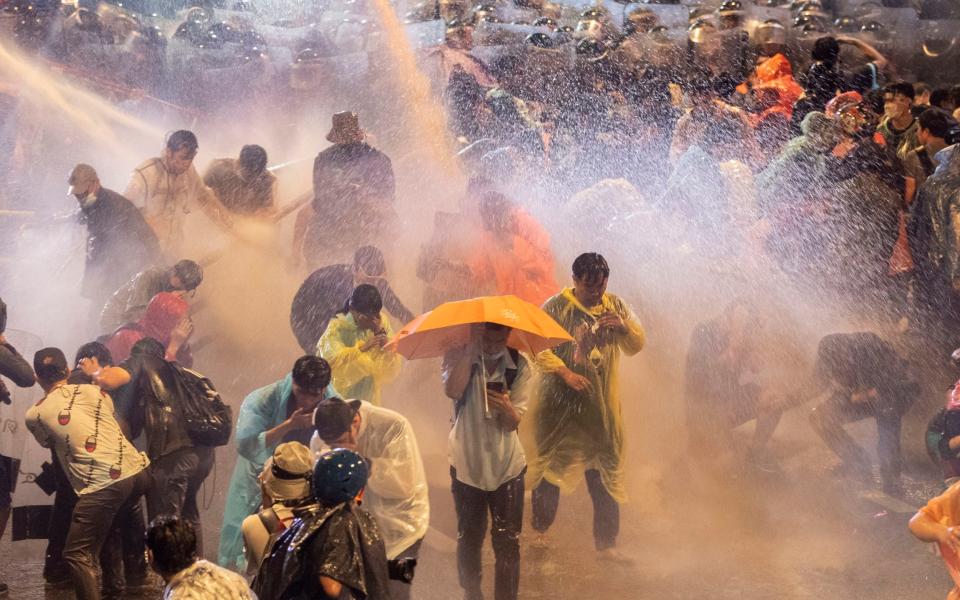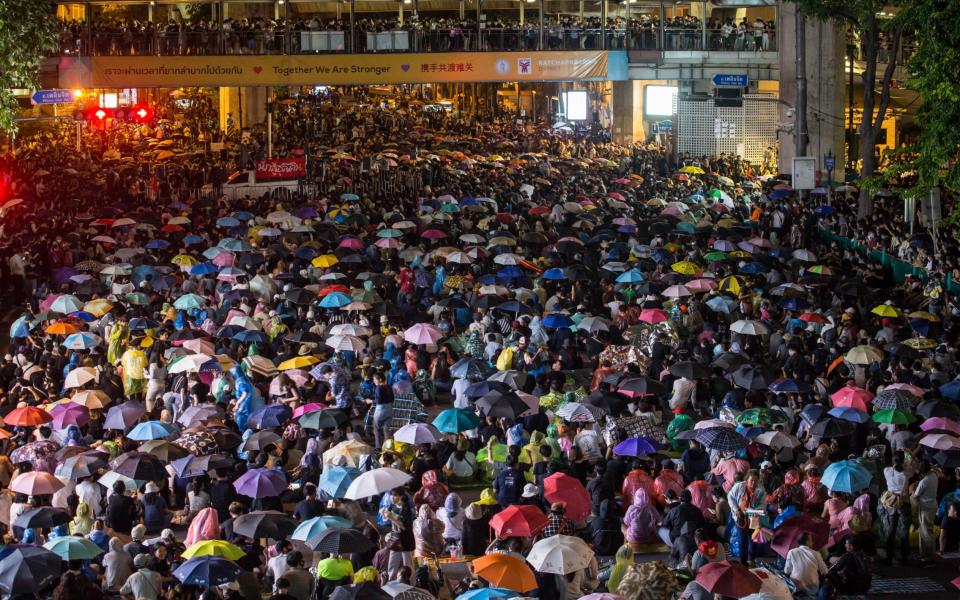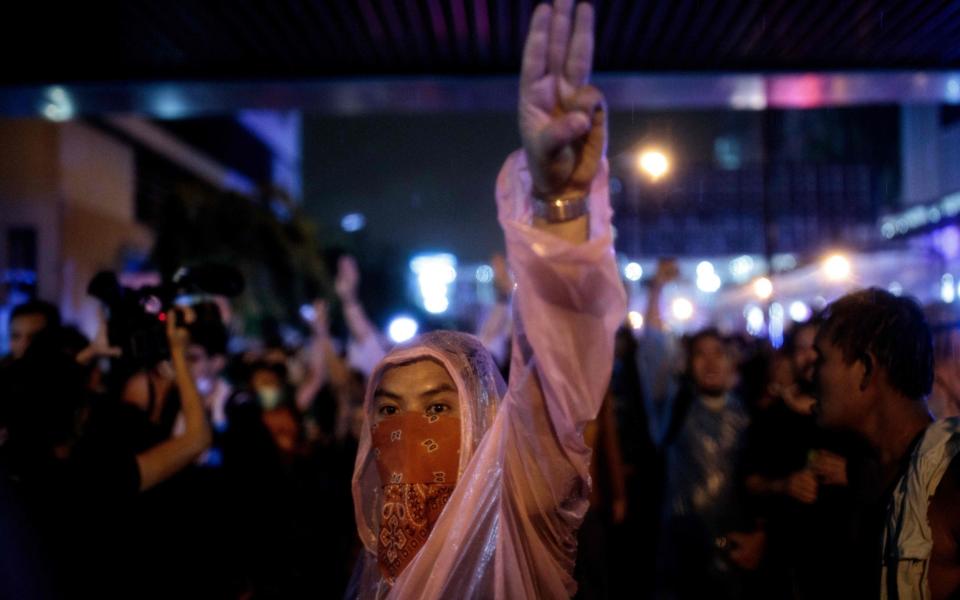Thailand's king says country needs royalists as protesters defying ban for second day are met by water canons

Thailand's King Maha Vajiralongkorn said his country needs people who "love the monarchy" as he broke his silence on anti-royal protests rocking the capital of Bangkok.
His pre-recorded comments were broadcast on state television as Thai police used water cannons, riot shields and batons to disperse thousands of protesters who defied a ban on protests for a second day.
The king has made no direct comment on three months of protests that have called for curbs to his powers as well as for the removal of Prime Minister Prayuth Chan-ocha, a former military ruler.
He said "the country needs people who love the country and love the monarchy", adding: "All your experience and the things that you've done. You can teach the new generation of your experience. This will be greatly useful."
Around 2,000 pro-democracy demonstrators had been chanting for the release of arrested activists and hurled obscenities at Prime Minister Prayut Chan-O-Cha in the city's main shopping mall district.


Several hundred riot police advanced towards them in formation, calling on the protesters to go home or face the water cannon.
A few metres away, hundreds of activists blocked the road behind a makeshift barrier, calling for the riot police to "get out!" and singing the Thai national anthem.
Police fired chemical-laced water from the cannon, pushing back the protesters who used umbrellas against the blue liquid.
"The dictatorial government is using violence to disperse the people's movement," said Tattep Ruangprapaikitseree, one of the protest leaders.
Youth-led protests have grown into the biggest challenge in years to a political establishment dominated by military figures and the Royal Palace of the king.
Until now, police had not used major force to suppress peaceful protests that have drawn tens of thousands of people, although more than 40 demonstrators - including several leaders - have been arrested in the past week.
An anti-government protester confronts police water cannons via @soezeya pic.twitter.com/ubjlrgw4zF
— Chayut ☠️ (@ChayutSet) October 16, 2020
The government banned political gatherings of more than five people on Thursday. "We've issued warnings against illegal acts," police spokesman Yingyot Thepchamnong told reporters.
Reuters journalists said water turned on the protesters contained chemicals making them sting. Organisers told protesters to disperse more than three hours after they gathered.
"I am not afraid for myself. I fear more for the future of the country," said one protester Poom, 31, who did not want to give his full name.
Prayuth first took power as army chief in a 2014 coup. Critics say he engineered a general election last year to keep hold of power as a civilian prime minister. He says the election was fair.
Protesters also want a new constitution, to replace one drafted under military rule.
🇹🇭Nueva jornada de protestas por la caída del Gobierno en #Tailandia.
En el centro de #Bangkok la Policía reprimió brutalmente a los manifestantes#16ตุลาไปราชประสงค์ #พรกฉุกเฉิน #16ตุลาไปแยกปทุมวัน
Acá lo que tenés que saber 👉https://t.co/KCHs73llV0 pic.twitter.com/bUoy7ShPGy— Juan Andrés Gallardo (@juanagallardo1) October 16, 2020
"I'm not quitting," Prayuth told reporters after an emergency cabinet meeting, adding that emergency measures would be in force for up to 30 days. He warned people not to violate them, saying: "Just wait and see ... If you do wrong, we will use the law."
Calls have also built up among protesters for reforms to the monarchy, which is accused by protesters of helping to entrench decades of military influence in politics.
Protests have been largely peaceful.
The only specific incident cited by the government for the imposition of emergency measures was one in which Queen Suthida's motorcade was jeered by protesters, but it also said protests were damaging the economy and national security.


Police said on Friday that two men would be charged with attempted violence against the queen, which carries a possible death sentence if her life is thought to have been threatened. Even if not, the charge can mean life in jail.
The UN High Commissioner for Human Rights was concerned about the situation in Thailand, said Ravina Shamdsani Said, a spokeswoman for commissioner Michelle Bachelet.
"We are particularly concerned about the application of serious charges, including the crime of sedition, against individuals for peacefully exercising their fundamental rights," she told a briefing in Geneva.
Thai parliamentary opposition parties condemned the emergency measures.
"Pheu Thai Party calls on General Prayuth Chan-ocha and the state officials to lift the emergency decree and to stop intimidating the people in all manners and to release those who were arrested immediately," said the party, which has the most seats in parliament.

 Yahoo News
Yahoo News 